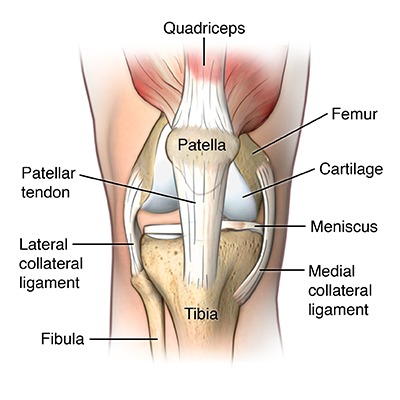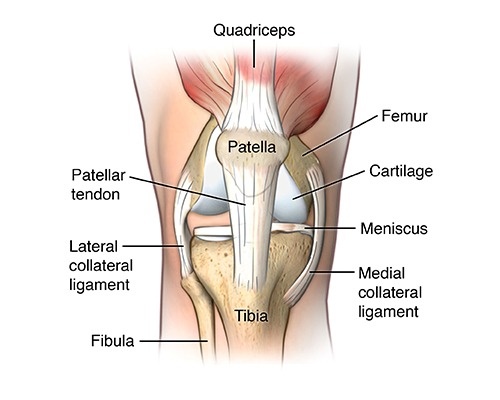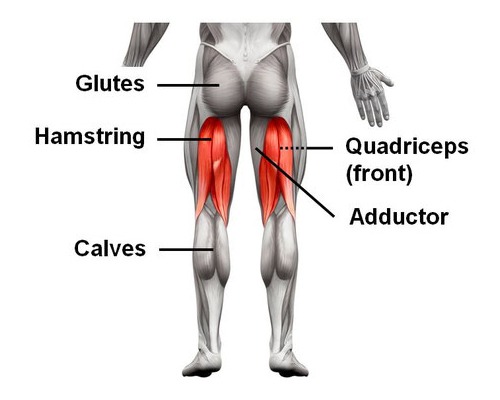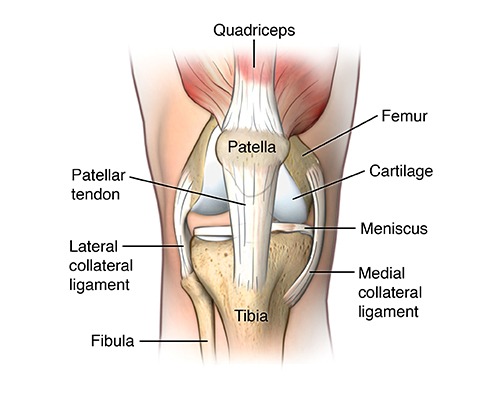What Is Patellar Tendonitis & Why Do Cyclists Experience It?
The Patellar tendon connects your knee cap to the front of your shin bone. You can see this demonstrated in the diagram below. “Tendonitis” refers to the tendon itself becoming inflamed. This inflammation can be caused by a variety of factors.
Cycling predominantly uses the quadriceps and hip flexor muscles. This overuse of specific muscle groups causes increased tension on the patellar tendon. Further the seated cycling position can cause shortening of the quadriceps and hip flexor muscle groups. Tightness in the ITB muscle (on the outside of the leg) combined with weakness of the VMO muscle (inside of leg) is also very common in cyclists. This leads to the knee cap moving incorrectly and further problems to the patellar tendon.
Check out the sections below to understand more about Patellar Tendonitis.

What Symptoms Will I Feel If I have Patellar Tendonitis?
- Pain at the front of knee/kneecap
- Pain as you begin to cycle which gradually worsens
- Soreness on impact to the knee – Jumping & Landing
- In severe cases pain when walking up/down stairs
- Some people see slight swelling at the front of the knee
What Are The Treatment Options If I Am Suffering With Patellar Tendonitis?
- Reducing the inflammation around the Patellar Tendon– This can be done through treatments such as acupuncture, EMS therapy, Ultrasound, cryotherapy. You can aid this process at home by using Ice around the painful region.
- Anti-Inflammatory medication will help in the short term however it is not a permanent fix.
- Complete rest or a large reduction in the amount of cycling completed. If you wish to maintain fitness swimming is a great low impact activity.
- Stretching the quadriceps & hip flexor muscles – This can also be helped through massage & vibration therapy. Foam rolling is also a great option.
- Strengthening the hamstrings, glutes and muscles around the knee.
- Adjusting your seat to a comfortable position.
We understand that sometimes it can be difficult to diagnose an injury without any medical training. Therefore if you are unsure or just want some piece of mind please book an appointment to see an injury specialist. They will be able to correctly diagnose the problem and inform you on the appropriate steps moving forwards.



